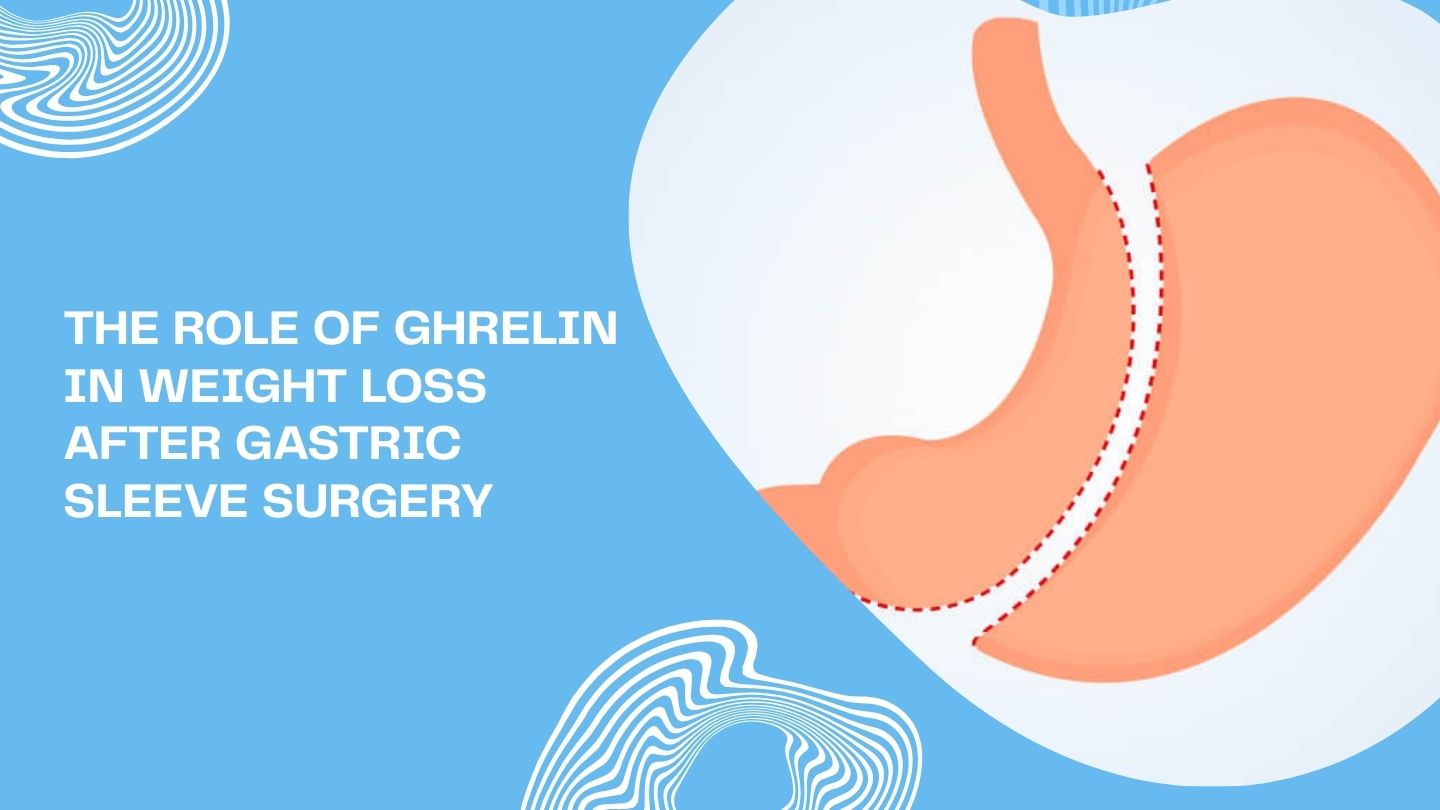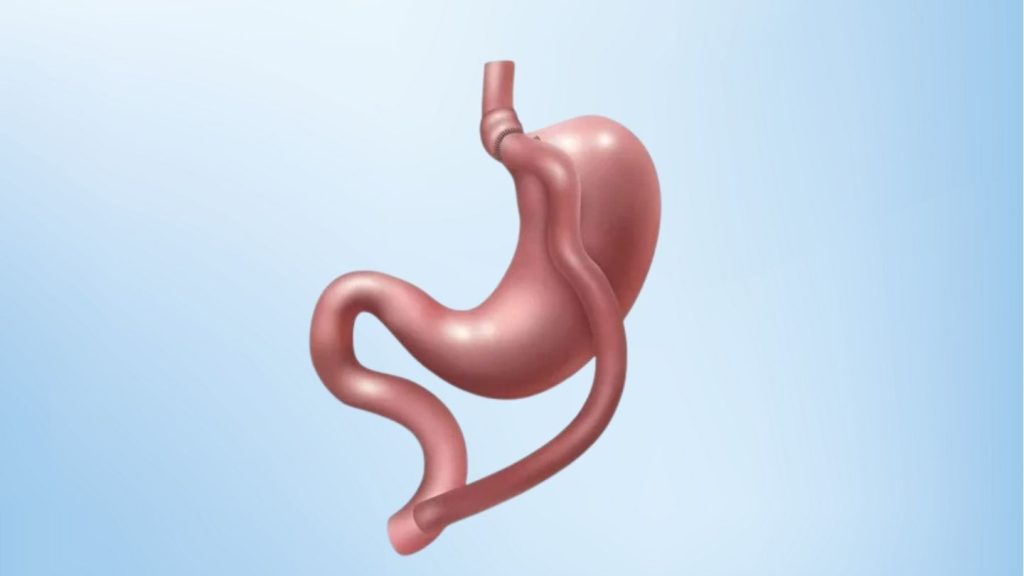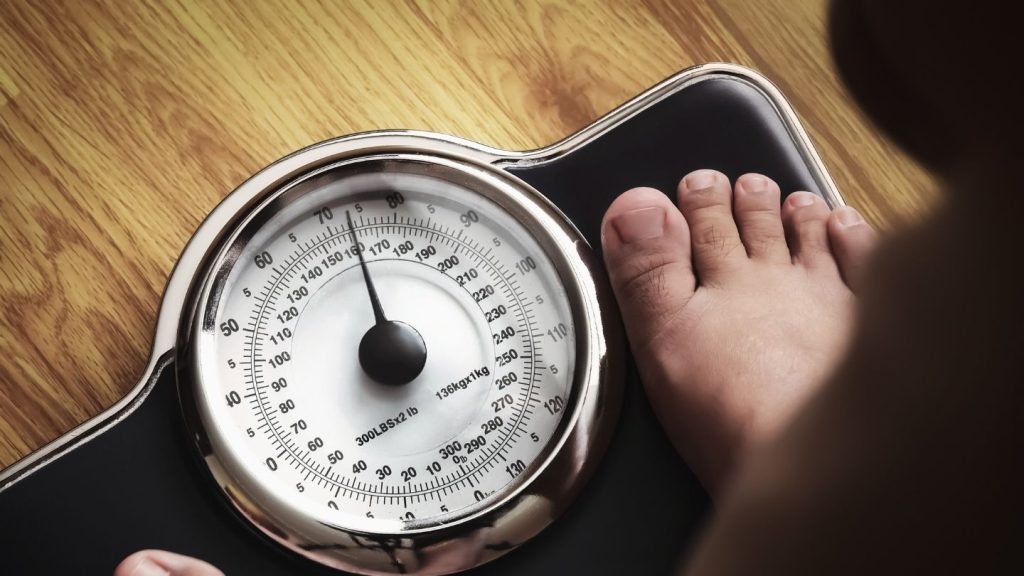
The Role of Ghrelin in Weight Loss After Gastric Sleeve Surgery
Gastric sleeve surgery reduces the hunger hormone ghrelin, making it easier for patients to control their appetite and lose weight. In this blog, we will examine the role of ghrelin in weight loss post gastric sleeve surgery, how ghrelin levels change post-surgery, and what this means for long-term weight management.
Key Takeaways
- Ghrelin, known as the ‘hunger hormone,’ plays a crucial role in signaling hunger and regulating appetite, with its levels fluctuating based on food intake.
- Post-gastric sleeve surgery, there is a substantial decrease in ghrelin levels due to the removal of the gastric fundus, aiding in appetite control and long-term weight loss.
- Maintaining psychological support and mindful eating practices is essential for patients after gastric sleeve surgery to manage hunger and sustain weight loss.
Ghrelin: The Hunger Hormone

Ghrelin, often dubbed the “hunger hormone,” is central to our body’s hunger signals. This orexigenic hormone, primarily secreted by ghrelin-producing cells in the stomach, triggers the sensation of hunger, urging us to eat. Ghrelin’s production is most active in the gastric fundus and the duodenum, parts of the gastrointestinal tract specifically designed to regulate this crucial gut hormone, including the hypothalamic arcuate nucleus, the growth hormone secretagogue receptor, gastrointestinal hormones, and growth hormone secretion.
The primary role of ghrelin is to signal hunger to the brain, particularly the hypothalamus, initiating the desire to eat. Ghrelin levels rise when the stomach is empty, leading to those familiar hunger pangs, and decrease after eating, contributing to the feeling of satiety. This dynamic regulation helps maintain energy balance and influences sugar and lipid metabolism, showcasing ghrelin’s multifaceted role in our body’s metabolic processes.
Interestingly, high ghrelin levels are often seen in individuals following restrictive diets, heightening their hunger sensations. This intricate dance of ghrelin secretion, ghrelin concentrations, and ghrelin levels in appetite control underscores its importance in both everyday eating habits and weight management strategies.
How Ghrelin Affects Appetite and Weight Gain
Ghrelin’s influence extends beyond mere hunger signals; it also plays a significant role in:
- Fat storage and overall body weight
- Stimulating appetite and encouraging the body to store fat, complicating efforts to lose weight
- Impacting gastric motility by speeding up the emptying of the stomach, which can lead to increased food intake and challenges in maintaining a caloric deficit.
During periods of fasting, ghrelin levels naturally rise, intensifying feelings of hunger and preparing the body for the next meal. These levels typically peak just before mealtime, signaling the body to anticipate and prepare for food intake. After eating, postprandial ghrelin levels decrease, reducing hunger sensations and promoting the satiety sensation. This cycle is crucial for maintaining energy balance, but can pose challenges for those trying to lose weight, especially when ghrelin levels don’t correspond with actual caloric needs.
Knowing how the body processes food post-surgery is equally important, and that includes understanding dumping syndrome after gastric sleeve surgery, a condition where food moves too quickly from the stomach to the small intestine, leading to uncomfortable symptoms and disrupted digestion. Interestingly, obese individuals with obesity often have lower baseline ghrelin levels, which might seem counterintuitive. This anomaly can affect their hunger sensations and complicate weight loss efforts, highlighting the complex relationship between body mass, body fat, ghrelin, appetite regulation, and body weight.
Impact of Gastric Sleeve Surgery on Ghrelin Levels

Gastric sleeve surgery profoundly impacts ghrelin production, primarily by removing the gastric fundus, the main site of ghrelin secretion. This surgical intervention leads to a significant decrease in plasma ghrelin levels, which stabilizes at a lower level within a month and remains consistent for at least six months post-surgery.
This reduction in ghrelin levels makes it easier for patients to control their food intake and experience reduced hunger sensations. Many patients report a significant decline in cravings and an increased sense of fullness, contributing to a decreased appetite and facilitating weight loss. This dramatic change is one of the key reasons why gastric sleeve surgery is so effective in promoting weight reduction and long-term weight management.
However, if you’ve been wondering why I am not losing weight after gastric sleeve surgery, it may be due to factors like hormonal adaptation, insufficient lifestyle changes, or nutrient imbalances that require medical review and support. The significant reduction in ghrelin levels post-gastric sleeve surgery helps patients better balance hunger and satiety, facilitating adherence to dietary changes and a healthier lifestyle.
Mechanisms Behind Ghrelin Reduction Post-Surgery
The primary mechanism behind the reduction in ghrelin levels post-surgery is the removal of the gastric fundus during sleeve gastrectomy. This part of the stomach is where ghrelin is predominantly produced, and its resection leads to a significant decrease in ghrelin secretion and decreased production shortly after the surgery.
Additionally, the reduction in stomach volume contributes to an earlier feeling of fullness, further decreasing ghrelin secretion levels. These combined factors result in a substantial and sustained reduction in plasma ghrelin levels, aiding in appetite suppression and supporting long-term weight loss.
long-term effects of reduced ghrelin on weight loss

The significant decrease in ghrelin levels immediately after gastric sleeve surgery has profound long-term effects on weight loss. Patients typically maintain stable, low ghrelin levels even six months post-surgery, indicating an ongoing hormonal regulation that supports weight management.
This sustained reduction in ghrelin contributes to decreased appetite and easier control of food intake, facilitating long-term weight reduction. Interestingly, while ghrelin levels may plateau after the initial drop, this does not negate continued weight loss, as other factors such as psychological adjustments and improved lifestyle choices play a crucial role.
Patients who continue to experience substantial weight loss post-surgery often do so without a significant increase in ghrelin levels, underscoring the importance of comprehensive care and behavioral modifications in achieving successful weight loss, sustained weight loss, and excess weight loss.
Comparing Ghrelin Changes in Different Bariatric Procedures

Different bariatric procedures impact ghrelin levels in distinct ways. For instance, gastric bypass surgery results in a more significant suppression of ghrelin levels compared to sleeve gastrectomy. Despite these differences, both procedures effectively reduce appetite due to decreased ghrelin, albeit through different mechanisms.
These variations matter because the degree of ghrelin suppression can influence weight loss outcomes and appetite control. Gastric sleeve surgery leads to a significant and sustained decrease in ghrelin levels for at least six months post-operation. However, post-surgery, ghrelin levels may plateau after an initial drop, indicating a potential adaptive response.
Understanding these differences helps tailor post-surgical care and dietary intake recommendations, ensuring that patients receive the most effective surgical treatment for their specific needs.
Patient Experiences with Appetite Post-Gastric Sleeve
Many patients report a significant reduction in hunger during the initial months following gastric sleeve surgery, but some experience a return of hunger relatively soon after. This variation underscores the importance of differentiating between physical hunger and “head hunger”—the psychological urge to eat.
Establishing a routine of regular, small meals can help manage hunger and prevent overwhelming cravings. This strategy, combined with mindful eating practices, allows patients to better control their appetite and maintain their weight loss efforts.
Sharing personal experiences and tips from other patients can provide valuable insights and support for those navigating their post-surgery journey, helping them achieve long-term success months after surgery.
Read more: Mastering Meal Prep: Portion Control for Bariatric Surgery Patients
Psychological and Behavioral Adjustments Post-Surgery
Psychological support and education are crucial for bariatric surgery patients, helping them manage the emotional changes that come with such a significant surgical procedure transformation and the various surgical procedures involved. Regular follow-ups with healthcare providers can help monitor mental health and adjust interventions as needed.
Mindful eating practices, such as slow eating and savoring food, enhance awareness of hunger cues and assist in controlling appetite. Professional support from dietitians and psychologists provides tailored strategies for managing hunger and addressing emotional eating.
Despite the decrease in ghrelin levels, some patients may experience temporary weight regain due to various factors, highlighting the importance of negative energy balance, balanced nutrition, hydration, and psychological resilience in achieving long-term weight management.
Additional Benefits of Gastric Sleeve Surgery

Gastric sleeve surgery offers numerous health benefits beyond weight loss, including:
- Significant improvements in glucose metabolism and insulin sensitivity, aiding in better blood sugar control
- Reduction in metabolic disorders
- Improved lipid profile, contributing to better heart health
These metabolic improvements help reduce the risk of conditions related to metabolic syndrome, enhancing overall health and longevity, leading to significant reductions in insulin resistance and health risks.
Moreover, many gastric sleeve surgery patients report enhanced energy levels and an improved quality of life post-surgery, underscoring the comprehensive benefits of gastric sleeve surgery.
Understanding Ghrelin’s Impact on Your Weight Loss Journey
Ghrelin plays a powerful role in how your body regulates hunger and metabolism, especially after gastric sleeve surgery. By significantly reducing ghrelin levels, this procedure helps patients experience a decrease in appetite, supporting long-term weight loss. Understanding this hormonal shift can empower patients to make more informed decisions and remain committed to their post-surgery lifestyle changes.
At Wellstar Comprehensive Bariatric Services, we guide individuals through every step of their transformation, from pre-surgical planning to post-operative support. If you’re considering gastric sleeve surgery in Cobb County, Marietta, Smyrna, Austell, LaGrange, or West GA, we’re here to provide compassionate care, expert guidance, and proven solutions to help you achieve lasting success on your weight loss journey.
Frequently Asked Questions
What is ghrelin, and why is it called the “hunger hormone”?
Ghrelin is a hormone produced primarily in the stomach that signals hunger to the brain. It increases before meals, prompting the sensation of hunger, and decreases after eating, helping regulate appetite and energy balance.
How does gastric sleeve surgery impact ghrelin levels?
Gastric sleeve surgery removes the gastric fundus, where most ghrelin is produced. This leads to a significant reduction in ghrelin levels, which helps control appetite and supports long-term weight loss.
Will hunger completely disappear after gastric sleeve surgery?
Most patients experience a substantial reduction in hunger post-surgery, but some hunger sensations may return over time. Differentiating between physical hunger and emotional “head hunger” is key to managing appetite.
How long does the reduction in ghrelin levels last after surgery?
Ghrelin levels typically drop immediately after surgery and stabilize at lower levels within six months. This sustained reduction helps with long-term appetite control and weight management.
What other factors influence weight loss after gastric sleeve surgery?
Besides reduced ghrelin levels, psychological support, mindful eating, lifestyle changes, and adherence to a healthy diet are critical for achieving and maintaining long-term weight loss.
